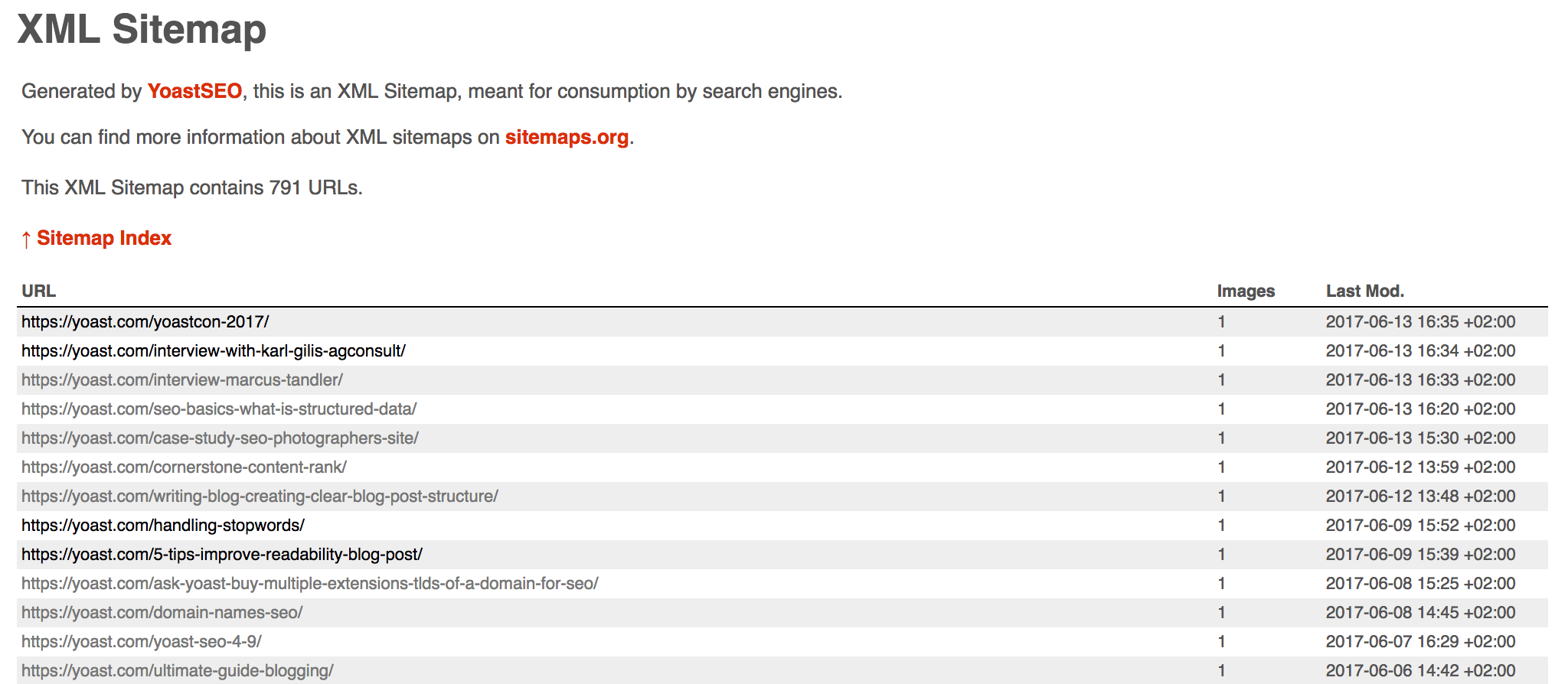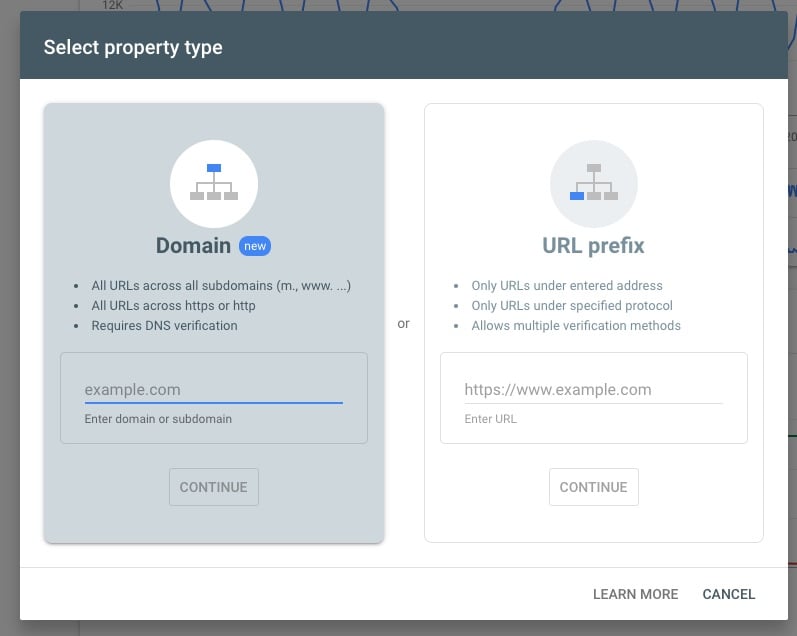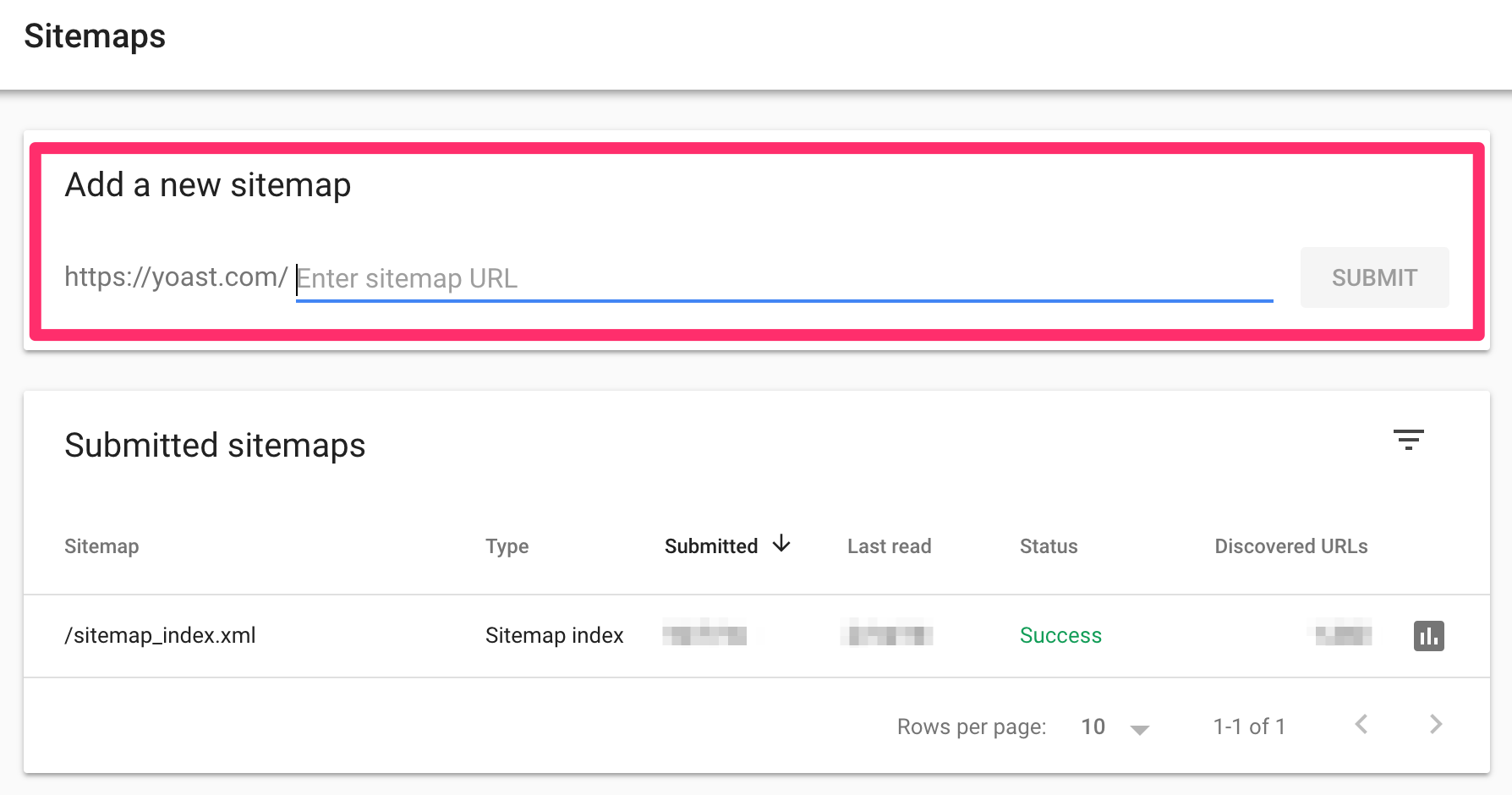How to get your new WordPress site indexed

When you roll out the red carpet on a new website, you might be expecting visitors to start coming eagerly. In reality, before people start visiting your site, search engines need to find, index and rank it. In this article, I share some tips that could help you get your site indexed faster.
A quick note before we go on. Although in the short term, there are some things you can do to get your site indexed faster, you mustn’t forget the long game. A sustainably high-ranking website depends in large part on creating remarkable content. Why? Because search engines want to find the best answer to the queries their users make. The site with the best content wins the race to the top of the search results.
How do search engines work?
To understand how to get your site indexed, it’s useful to know how search engines work. Search engines generate results in three main steps: crawling, indexing, and ranking.
Crawling is the process of discovery done by crawlers, bots, or spiders. A computer program instructs crawlers on what pages to crawl and what to look for. When crawlers land on a page, they gather information and follow links. Whatever they find, they report back to the search engine servers. Then, the search engine tries to make sense of the page in order to index it. It looks at the content and everything it finds, it puts in a giant database; their ‘index’.
Finally, ranking begins when you search for something online. So, the search engine algorithm looks through the index and filters the pages to find the best ones. We do not know the exact mechanics of the algorithm. Still, we know that search engines are especially enthusiastic about high-quality content and user-friendly, up-to-date pages.
Read more: What does Google do? »
Crawling, indexing and ranking never stop. As new pages keep pouring in, and as old ones get updated, the crawlers continuously crawl, and the search engines get new and improved ways to gather and display results.
So, how can you speed up this process and help search engines find you quicker? An excellent way to start is submitting an XML sitemap in Google Search Console.
How to get your site found and indexed by Google:
- Create an XML sitemap with Yoast SEO
An XML sitemap is a file that contains information about your website. In plain language, it is a list of your most important pages. It is a useful tool that helps Google find and explore your site. Yoast SEO can help you to create a sitemap. All you need to do is enable the XML sitemap option and the sitemap will be automatically generated. It’s quite a time saver!

- Set up an account with Google Search Console
After you’ve created the sitemap, you need to tell Google about it. Google Search Console is a tool that can help you with that. To add your sitemap to the Console, you need to create an account. Yoast SEO can also help you get your site verified with Google Search Console.

- Add your sitemap to Google Search Console
In Google Search Console, you will find the XML sitemap tab. There, you can add the sitemap you created, so that Google will know where to find it. If you update content on your site, your XML sitemap will be updated automatically.

- And/or, submit your most important individual pages in Google Search Console
On top of this, you can ask Google to crawl individual pages too. In Google Search Console you’ll find the URL inspection tool, where you can ask Google to crawl or recrawl a URL. There’s a quota, so think about which pages are crucial for your business in terms of ranking and submit those here.
Keep reading: SEO for a new website: the very first things to do »
Why do you need an XML sitemap?
We mentioned that crawlers discover pages by following links. When you have a new website, you may face at least two issues. First, there are likely not that many external sites that point to your website. Second, you probably still don’t have a lot of content, so your internal linking and your site structure are not (yet) stellar. Without links, how can the crawlers come to your site?
One solution to getting your site indexed is to create a sitemap right from the start and add it to Google Search Console. However, since you might still not have a lot of content, you should be careful with what you include in it. Although you can create sitemaps for videos, images, categories, and tags, it does not mean that you should necessarily do it. For example, you might have already set up some categories. But, for each category, you have just one post. In that case, creating a sitemap for your categories is not so useful, since the content does not give a lot of information, both to visitors and crawlers.
It is important to note that Google may not crawl and index all the items in your sitemap. Still, we encourage you to create one, as we believe that you will benefit from it.
Getting your site indexed beyond Google
We told you how you could submit a sitemap with Google Search Console. But, it’s not the only search engine out there. So, how can you submit your sitemap to other search engines? It is easy with Yoast SEO. Other search engines also have Webmaster tools, where you can submit a sitemap and follow the performance of your site. Currently, you use Yoast SEO to add your site to:
What’s next?
After you’ve created a sitemap and connected it to search engines with Yoast SEO, can you finally sit back, relax, and watch as visitors pour in? Not really. As we said, you will have to continue making high-quality content. Don’t forget that you can also use social media to your advantage and strategically share your content there. Another important thing is getting links from other, preferably high-ranking websites. That means that you will need to work on your link building. Of course, don’t forget to apply holistic SEO strategies to your website to cover all SEO fronts and ensure high rankings.
Read on: How to rank high in Google »


i could never expect that SEO will be that much easy just to pressing some buttons and all done ??
Yoast Seo made my websites amzingly professional and great with its features and i love to say that Yoast SEO is the best plugin for everyone worldwide
wowthanks for sharing us nyc post
making high-quality content. Don’t forget that you can also use social media to your advantag
Very useful SEO tutorials, i also use Yoast seo plugin!
Being very honest, Yoast has helped us alot gaining rank as one of the best digital marketing company in jaipur. All the very best to the yoast team, Keep up the good work!
That’s great to hear, Raghav! Thanks so much
Hi Dijana,
Is there any Limit on number of URL’s or web pages while creating sitemap of my website such as 1000 pages or URL’s etc. as in XML structure.
Hi there!
There are some limits (no more than 50,000 URLs in a sitemap, and no more than a 10mb filesize), but don’t worry about that – we’ll split your sitemap up into smaller pieces for you automatically!
How can I get the Google business stars from my physiotherapy center in the meta data from my site?
Hi Yoast team,
Great content. I agree that we need to go beyond Google. The China market for example is huge. If you are a native Chinese writer, there are more places that you can target, instead of just Google.
Keep it up!
Google is still the best tho